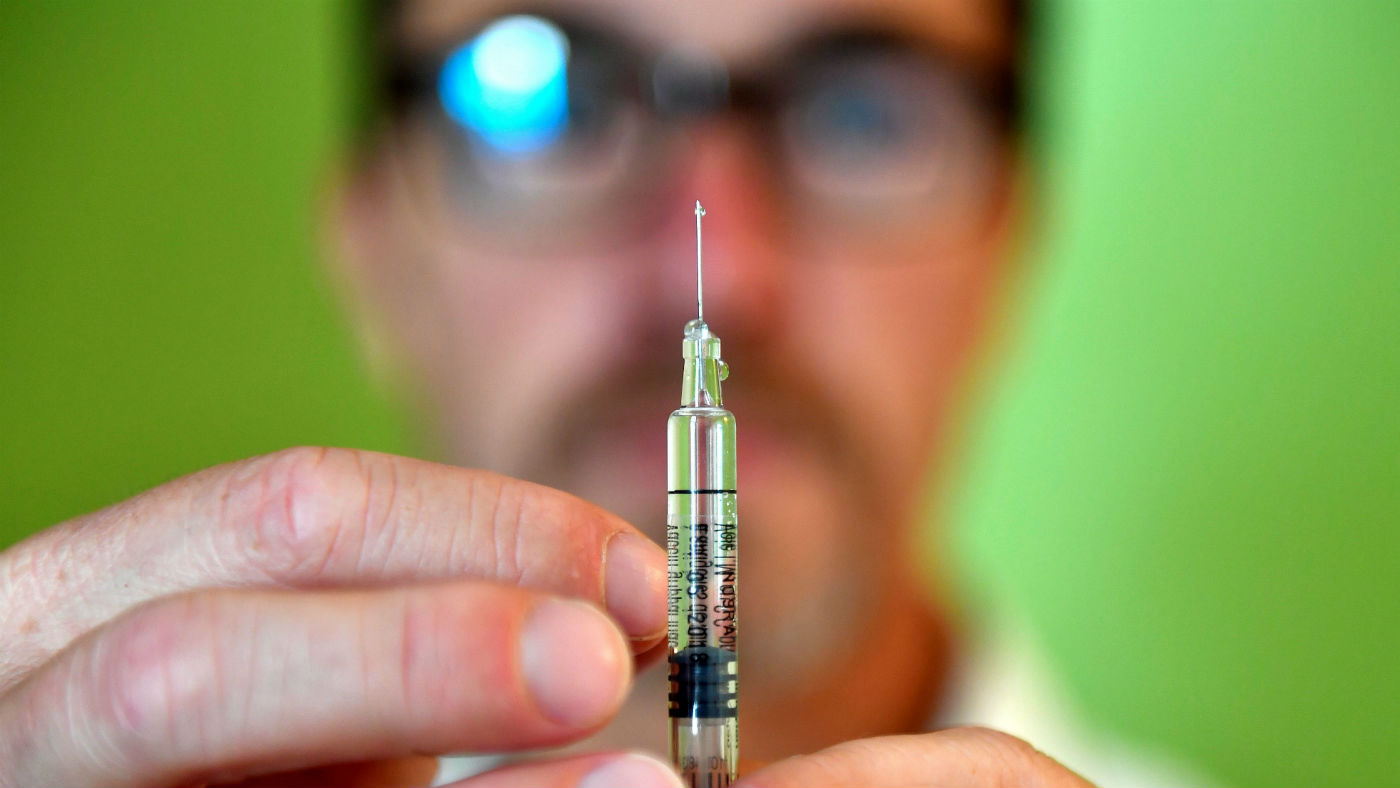Scientists begin testing two coronavirus vaccines
Australian researchers reach ‘critical milestone’ in global Covid-19 battle

A free daily email with the biggest news stories of the day – and the best features from TheWeek.com
You are now subscribed
Your newsletter sign-up was successful
Scientists in Australia have begun testing two potential coronavirus vaccines, marking a “critical milestone” in the fight to bring the global pandemic under control.
The vaccines, made by Oxford University and US company Inovio Pharmaceutical, have been cleared for animal testing by the World Health Organization.
The first human trial for a coronavirus vaccine took place in the US last month, the BBC reports. But Australia’s Commonwealth Scientific and Industrial Research Organisation (CSIRO) says its tests will be the first pre-clinical trials of the vaccines using an animal model – in this case ferrets, which contract the coronavirus as humans do.
The Week
Escape your echo chamber. Get the facts behind the news, plus analysis from multiple perspectives.

Sign up for The Week's Free Newsletters
From our morning news briefing to a weekly Good News Newsletter, get the best of The Week delivered directly to your inbox.
From our morning news briefing to a weekly Good News Newsletter, get the best of The Week delivered directly to your inbox.
The Guardian adds that approximately 35 companies and academic institutions around the world are currently racing to create a vaccine.
–––––––––––––––––––––––––––––––For a round-up of the most important stories from around the world - and a concise, refreshing and balanced take on the week’s news agenda - try The Week magazine. Start your trial subscription today –––––––––––––––––––––––––––––––
“Normally it takes about one-to-two years to get to this point and we’ve in fact shortened that to a period of a couple of months,” Rob Grenfell from CSIRO told reporters.
“This unprecedented speed is thanks in large part to early Chinese efforts to sequence the genetic material of Sars-CoV-2, the virus that causes Covid-19,” says The Guardian.
A free daily email with the biggest news stories of the day – and the best features from TheWeek.com
“China shared that sequence in early January, allowing research groups around the world to grow the live virus and study how it invades human cells and makes people sick.”
Another factor is access to existing research combating similar viruses, particularly severe acute respiratory syndrome (Sars) and Middle East respiratory syndrome (Mers).
According to Yahoo Finance, scientists elsewhere are also trialling existing drugs used to treat conditions such as Ebola, HIV, malaria and tuberculosis in order to establish if they could be used against the coronavirus.
“The ideal vaccine would be safe, easy to administer, simple and cheap to manufacture, and provide long-term protection against Covid-19,” write Kylie Quinn and Damian Purcell on The Conversation.
“But, to begin with, we’d even be happy with a vaccine that could reduce the amount of virus generated during a typical infection. If an infected person is making less virus, they are less likely to infect others. Less virus could also reduce the amount of damage caused by an infection in the patient.”
The first results from animal tests could be revealed as early as June, scientists say, and if successful, the vaccines could then be moved into clinical trials that could be conducted at labs elsewhere.
“At that point, the race to get the medicine into the general market could be accelerated, but experts warn it would still involve a minimum 18-month timeline to meet regulatory tests and standards,” says the BBC.
-
 The ‘ravenous’ demand for Cornish minerals
The ‘ravenous’ demand for Cornish mineralsUnder the Radar Growing need for critical minerals to power tech has intensified ‘appetite’ for lithium, which could be a ‘huge boon’ for local economy
-
 Why are election experts taking Trump’s midterm threats seriously?
Why are election experts taking Trump’s midterm threats seriously?IN THE SPOTLIGHT As the president muses about polling place deployments and a centralized electoral system aimed at one-party control, lawmakers are taking this administration at its word
-
 ‘Restaurateurs have become millionaires’
‘Restaurateurs have become millionaires’Instant Opinion Opinion, comment and editorials of the day
-
 A Nipah virus outbreak in India has brought back Covid-era surveillance
A Nipah virus outbreak in India has brought back Covid-era surveillanceUnder the radar The disease can spread through animals and humans
-
 Trump HHS slashes advised child vaccinations
Trump HHS slashes advised child vaccinationsSpeed Read In a widely condemned move, the CDC will now recommend that children get vaccinated against 11 communicable diseases, not 17
-
 A fentanyl vaccine may be on the horizon
A fentanyl vaccine may be on the horizonUnder the radar Taking a serious jab at the opioid epidemic
-
 Health: Will Kennedy dismantle U.S. immunization policy?
Health: Will Kennedy dismantle U.S. immunization policy?Feature ‘America’s vaccine playbook is being rewritten by people who don’t believe in them’
-
 How dangerous is the ‘K’ strain super-flu?
How dangerous is the ‘K’ strain super-flu?The Explainer Surge in cases of new variant H3N2 flu in UK and around the world
-
 Vaccine critic quietly named CDC’s No. 2 official
Vaccine critic quietly named CDC’s No. 2 officialSpeed Read Dr. Ralph Abraham joins another prominent vaccine critic, HHS Secretary Robert F. Kennedy Jr.
-
 This flu season could be worse than usual
This flu season could be worse than usualIn the spotlight A new subvariant is infecting several countries
-
 Covid-19 mRNA vaccines could help fight cancer
Covid-19 mRNA vaccines could help fight cancerUnder the radar They boost the immune system